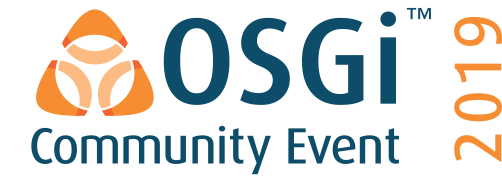Java is moving forward faster with a rapid release model. It's an exciting time for Java developers. Every new Java version promises interesting features and updates. If you are an early adopter, tell us about your first experience. It's not only about the next version; share what's new and tips & tricks in Eclipse JDT, tell us about your experience with switch expressions, local variable type inference, module system, using Java libraries for corner cases, garbage collection, performance tuning, real-time Java, combining Java with other JVM languages, and other interesting things you do in the Java world.
The rise of containerized applications, the need to deliver on the promise of polyglot microservice architectures and the growth of Kubernetes as the orchestration system of choice are all contributing to a development model that is quite different from the past and which is greatly increasing the amount of expertise and knowledge a developer needs on a daily basis.
In this interactive talk, ROCOCO plugin will be demonstrated which is developed in JDT by applying annotation processing to enable and encourage the programmer to depict behavioral code as role oriented concurrent contexts in plain JAVA.
Today I will discuss a curious collection of Java code snippets that do have surprising, amusing or simply confusing results. If you ever wanted to test your knowledge about Java, feel free to accept the challenge and come to this interactive session of puzzling pieces of code.
Java Modules are here to stay, and ignoring them in your code is gradually becoming impossible.
On the other hand, no-one should expect to arrive in a 100% modularized nirvana any time soon. The Java community will live in a muddled world, that's no longer here but not yet there, either, and this for some time to come.
In this period, he is king who brilliantly masters the available tools for tweaking modularity.
This isn’t a talk about microservices, NoSQL, container solutions or hip new frameworks. This talk will show some of the standard Java APIs that are part of Java since version 5, 6, 7 or 8. All those features are very helpful to create maintainable and future-proof applications, regardless of whether JavaEE, Spring, JavaFX or any other framework is used. The talk will give an overview of some important standard concepts and APIs of Java like annotations, null values and concurrency. Based on an overview of this topics and some samples the talk will answer questions like:
Will give the options as to - What all can the user who are running Applet do now?
Is there really any option to run the teeny tiny applets?
If yes - Then what? And Where?
If no - Then how will you run your applications?
a) With example will show how you could convert your Applets into Jnlps and Deploying using IcedTea-Web.
b) How you would use IcedTea web instead of Java Web Start. Walking through various options and the whats on plan for future.
Object oriented programming bears strikingly close relationship with the Greek philosopher's Aristotle's Categories. i.e the book which had an huge impact in shaping the western thought and logic. In this session i talk about how these principles are used to shape OOP constructs either consciously or subconsciously. And later move on to more general ways in which philosophy can improve programming.
A five word horror story: Your code suddenly stops working. It may have worked just fine when it was written ten years ago, but now it's suddenly failing on JDK 13 or JDK 14 early access builds. We will discuss how to figure out whether that's because of a JDK issue, a configuration issue, or some aspect of the code itself. Then we'll dive into how to go about fixing it, based on experiences from the OpenJDK Quality Outreach.
A quick overview of new features in JDK 13, along with the state of development of JDK 14 and JDK 15. Learn more about new preview Java programming language features in JDK 13 like switch expressions and text blocks, followed by the benefits of dynamic CDS archives and the state of development of JDK 14 at rampdown. We'll discuss JEPs, major RFEs, as well as other changes of interest in those releases.
With the new release cadence putting innovations faster into hands of developers, it's possible to use the new features in your code without having to wait several years for them to land in an LTS release. We'll discuss how to organize your code and development processes to make adoption of new JDK releases simpler, as well as the tooling available in the Java ecosystem to assist with that task. Specifically, we'll cover using jdeprscan, jdeps and similar tools on your code, javac cross compilation, using multi-release JAR files, doccheck and doclint, AOT, CDS.

